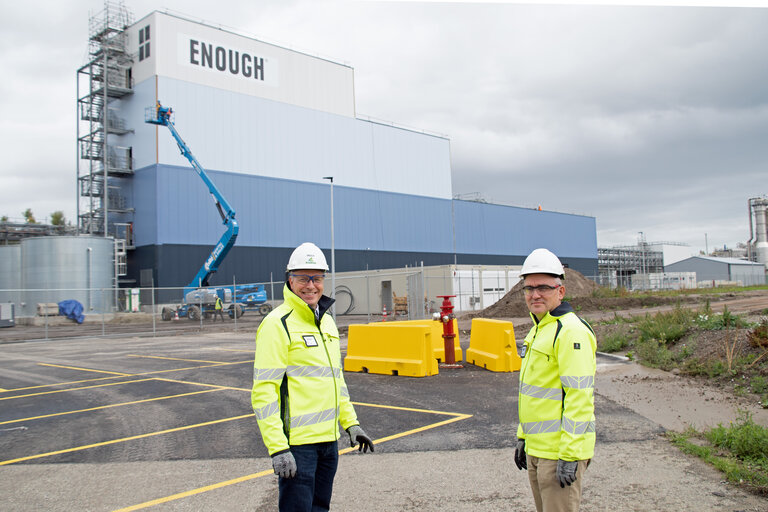
Enough builds world's largest protein plant in Zeeland
The world faces several major challenges. Climate, energy and food supply, to name a few. The Scottish founders of Enough are happy to take on those challenges. In Sas van Gent, the company recently had a factory built where Enough will make vegetable food protein for meat substitutes from fungi. Bilfinger is taking care of the scaffolding and insulation work.
If the world population continues to grow at the same rate, it is estimated that by 2050 there will be 10 billion mouths to feed. Today, the need for protein is still mostly satisfied with meat. Producing a kilo of beef requires 15,000 liters of water. Then theoretically three earths will be needed by the middle of this century, Enough reasoned. But one earth should be enough, they thought. And that immediately explains the company name. The foodtech company therefore devoted itself to making the high-quality protein source mycoprotein by feeding fungi sugars from raw materials such as grain.
Moist substance
The semi-finished product produced by Enough is marketed under the brand name Abunda Mycoprotein. It is a highly nutritious moist substance that is remotely reminiscent of chicken meat. What comes off the line is frozen on site and then transported in freezer trucks to a cold store in the port of Zeebrugge. Enough will soon supply the product exclusively to the vegetarian "meat industry", to companies such as Vivera or De Vegetarische Slager. They then turn it into vegetarian chicken snacks, bacon, barbecue meat or fish sticks.
Growth
The new plant will be the largest protein plant in the world. Current capacity is 10,000 tons per year, but Enough aims to grow to more than a million tons by 2032. This would mean that protein production would require five million fewer cows and a big 1.2 billion fewer chickens. That, in turn, would mean a reduction of six million tons of CO2 emissions, the equivalent of planting 30 million trees. The projected growth is based on the increasing demand for non-animal protein. In fact, the company expects protein consumption to double in the next 30 years. Currently, 70 percent of the protein we eat is of animal origin, such as meat, milk, eggs and cheese. To meet climate goals and reduce environmental impact, we should eat more protein from plant sources, such as grains, legumes, nuts and seeds. In addition, more and more consumers want to move away from the consumption of animal proteins for reasons of principle.
Residuals
Enough found Zeeland to be the best location for the new plant, which - not entirely coincidentally - is next to the Cargill site. Indeed, the location and cooperation with Cargill ensure an efficient supply of raw materials. With Cargill looking for a partner like Enough, the Scottish company is assured of a continuous supply of grain. Moreover, Enough feeds the residues back to Cargill's bioethanol plant, allowing Enough to produce without waste. The province of Zeeland is also pleased with the arrival of this innovative industry because it will bring with it high-quality employment, initially about 25 jobs. Moreover, it will put Zeeland on the map as an attractive business location. Production in Sas van Gent will start from the fourth quarter of 2022.
In the construction of the new Enough plant, Bilfinger Industrial Services is providing scaffolding, insulation and tracing. 'We started the job even before the first pile was driven,' says project manager Olaf Rammeloo. 'That was at the beginning of April 2022. Thanks to our scaffolding, the concrete workers were able to get to work. The plant rose rapidly, and as soon as sections were released, our scaffold builders and insulation fitters went to work immediately. We also provided scaffolding for the installation of some two kilometers of power, water and product lines between Enough and Cargill. Bilfinger ROB provided another part of the piping. At the moment we are supporting the start-up of the plant.'
